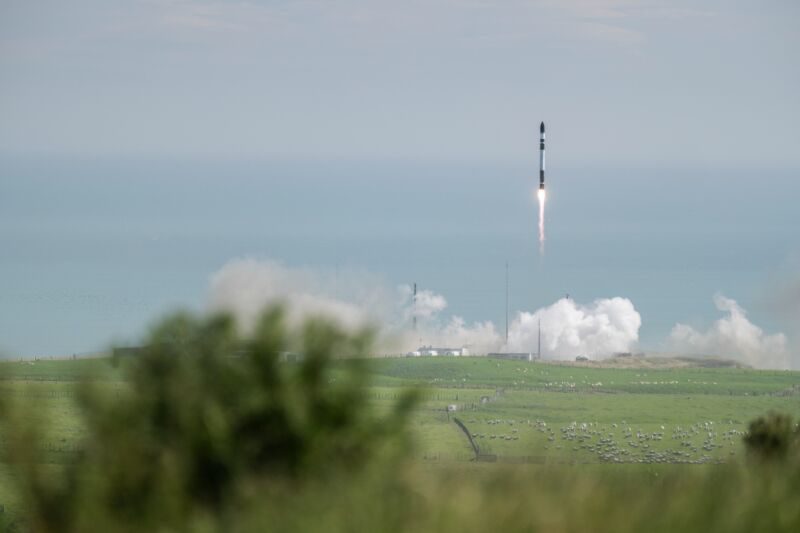
Welcome to Edition 6.24 of the Rocket Report! This will be the final edition of this newsletter until January 4—hey, space enthusiasts need a holiday break too! And given all that’s expected to happen in 2024 in the world of launch, a bit of a recharge seems like a smart move. Stephen and I wish everyone happy holidays and a healthy and prosperous new year. Until then!
As always, we welcome reader submissions, and if you don’t want to miss an issue, please subscribe using the box below (the form will not appear on AMP-enabled versions of the site). Each report will include information on small-, medium-, and heavy-lift rockets as well as a quick look ahead at the next three launches on the calendar.

Ranking the top 10 US launch companies of 2023. Oops, we did it again and published a list of the most accomplished US commercial launch companies. It’s no surprise that SpaceX is atop the list, but what comes after is more intriguing, including a new company in second position. I hope the list sparks debate, discussion, and appreciation for the challenge of operating a successful rocket company.
This is a really hard business … The article closes with this message, which I think is a fitting way to end the calendar year and kick off the holiday season: “As ever, I remain in awe of all the talented engineers and business people out there trying to make a go of it in the launch industry. This is a difficult and demanding business, replete with problems. I salute your hard work and hope for your success.”
New Shepard finally flies again. With redesigned engine components, Blue Origin’s New Shepard rocket took off from West Texas and flew to the edge of space on Tuesday with a package of scientific research and technology demonstration experiments, Ars reports. This was the first flight of Blue Origin’s New Shepard rocket since September 12, 2022, when an engine failure destroyed the booster and triggered an in-flight abort for the vehicle’s pressurized capsule during an uncrewed flight.
Does “soon'” really mean soon? … It took 15 months for Blue Origin to return to flight with New Shepard, but Tuesday’s successful launch puts the company on a path to resuming human missions. So when will Blue Origin start flying people again? “Following a thorough review of today’s mission, we look forward to flying our next crewed flight soon,” said Erika Wagner, a longtime Blue Origin manager who co-hosted the company’s webcast of Tuesday’s flight. (submitted by EllPeaTea and Ken the Bin)
Electron successfully returns to flight. Rocket Lab successfully launched a Japanese radar imaging satellite on the first flight of its Electron rocket since a failure nearly three months ago, Space News reports. The Electron lifted off from the company’s Launch Complex 1 in New Zealand at 11:05 pm ET on December 14. The vehicle deployed its payload, the QPS-SAR-5 or Tsukuyomi-1 satellite, for Japanese company iQPS, afterward.
A record number of launches this year … The launch was the first for Electron since a September 19 failure during a launch of another radar-imaging satellite for Capella Space. On that mission, the first stage performed as expected, but the second stage’s engine appeared to shut down immediately after ignition, preventing it from reaching orbit. The launch was the 10th flight of the Electron this year, including one launch of a suborbital version of Electron called HASTE. (submitted by Ken the Bin)
Shetland approved for UK launches. SaxaVord Spaceport on the small island of Unst has been given approval from the Civil Aviation Authority to begin orbital launches in 2024, the BBC reports. It will be the first fully licensed spaceport in Western Europe able to launch vertically into orbit. It permits up to 30 launches a year that will be used to take satellites and other payloads into space.
Launches this summer? … The site, which is the first spaceport in Scotland, has several launch operators around the world currently developing rockets. It is anticipated that German rocket firm HyImpulse will attempt sub-orbital launches as early as this August. Full orbital launches are expected to take place at SaxaVord from 2025. Cornwall Spaceport was the UK’s first licensed spaceport; however, its rockets are launched horizontally and carried by an aircraft. (submitted by gizmo23 and Ken the Bin)
https://arstechnica.com/?p=1992244

